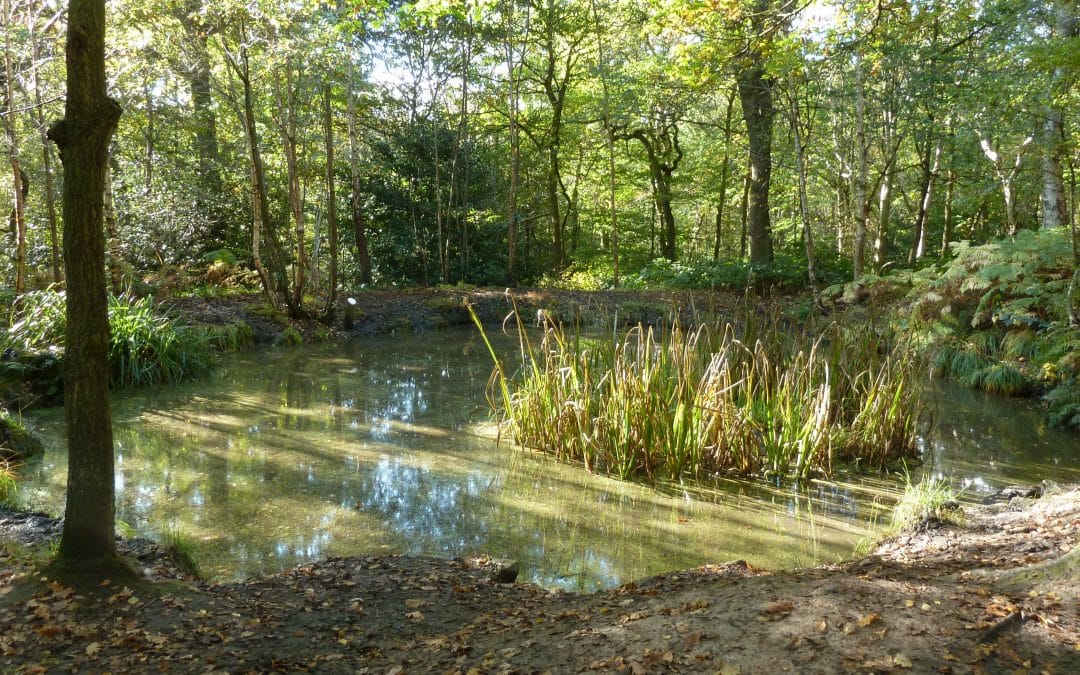This weeks guest blog is from Roger Gilbert, and he talks us through the calming effect of forest bathing.
A few days ago, after several hours of Zoom calls, I felt jaded and couldn’t face more time at the computer and so I decided to go and find something to do in the garden.
To my amazement, after about a minute of being outside, I found my feelings of being weighed down lifted completely and I felt refreshed and energised – and I enjoyed pottering about in the garden for the next hour or so.
I am not the first to discover that just being outside in the natural world can improve our wellbeing. In fact, numerous studies have found that spending time out in green space brings many health benefits.
You may even have heard of “Forest Bathing”, a practice which began in Japan in the 1980s, and which is becoming popular in the UK. In this practice – in which you remain fully clothed by the way! – you spend time enjoying the woods with all your senses. The aim is twofold – to offer an antidote to stress and to inspire people to connect with and protect our forests.
Japanese researchers have found that forest bathing can:
- reduce blood pressure
- reduce stress
- improve concentration and memory
- boost the immune system
- increase anti-cancer protein production
- Lower blood-sugar levels
- lift depression
In 2020 a review of current literature concluded that forest therapy plays an important role in preventive medicine and stress management for all ages.
As my own recent experience shows, even a short time out in nature can have a powerful effect on our wellbeing and a number of factors seem to make time spent in the garden, the park or the woods so beneficial:
- natural light not only helps set your body clock and improve sleep, but is also believed to increase the production of serotonin which helps the digestive system, sleep and mood;
- when we engage in gentle physical exercise endorphins are released into the bloodstream, improving wellbeing;
- many plant species produce compounds and oils called phytoncides to fight infection from viruses and bacteria, and studies show that inhalation of phytoncides has beneficial effects on our immune, endocrine, circulatory and nervous systems;
- soil, compost and leaf mold contain mycobacterium vaccae, and proteins from the cell walls of this bacterium trigger the further release of serotonin in our brains (so weeding is good for you!);
- getting out in nature can prompt us to experience awe – a state of wonder coupled with a sense of being small in the presence of something bigger than ourselves, which has been shown to have many psychological and physiological benefits;
- if there is a pond or stream in the vicinity it is even better: the sound of water has been shown to reduce production of the stress hormone cortisol, and MRI scans have shown that when people are shown videos of water their brain activity moves from flight or fight to relaxation.
So if you are stressed “take a walk on the wild side” and enjoy some mindful time out in your local garden, your local park or woods. Even better make it part of your daily routine to enjoy some ecotherapy!
Roger Gilbert is a hypnotherapist specialising in stress and management and anxiety, a workplace and commercial mediator, and the Chair of Friends of Adel Woods in Leeds. For more information, please visit his website www.rogergilbert.co.uk or call him on 0113 285 7136 or email [email protected]


